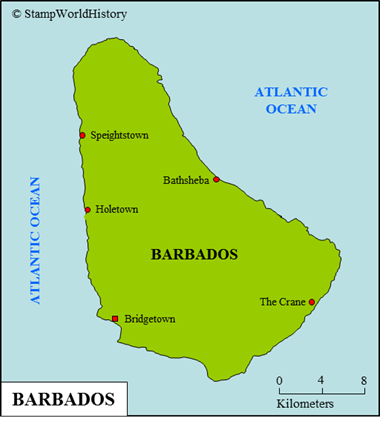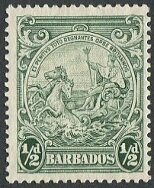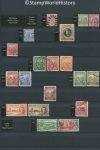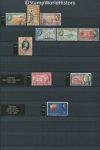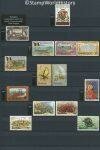
Barbados
British colony
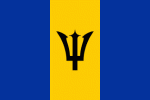
Barbados
Independent
Quick reference
General issues: British colony 1852-1958, Province West Indies Federation 1958-1962, British colony/Self government 1962-1966, Independent within the British Commonwealth 1966-Present
Country name on general issues: Barbados
Currency: 1 Pound = 20 Shilling, 1 Shilling = 12 Pence 1852-1950, 1 Dollar = 100 Cent 1950-Present
Population: 195 000 in 1900, 284 000 in 2013
Political history Barbados
Barbados is located in the Atlantic Ocean, just east of the Lesser Antilles and the Caribbean – the island is commonly considered part of the Lesser Antilles, although, strictly speaking, it is not. For the exact location, please refer to the map of the Caribbean. Prior to colonization, Barbados was inhabited by the Amerindian Carib people – a people found on many of the Lesser Antilles. The first European sighting is unrecorded. Barbados first appears on a Spanish map in 1511. The Spanish claimed Barbados, but did not settle the island. However, they – and the Portuguese – did visit the island. The indigenous population appears to have been, for the larger part, deported by Spanish slave raids. The remainder of the population sought refuge on neighboring islands less accessible for the Spanish and, thus, Barbados was effectively uninhabited by the end of the 16th century. After the Spanish, it was the British who claimed Barbados in 1625 and established a permanent settlement in 1627. Since then, Barbados has been a British colony.
In 1833, Barbados was made part of the Windward Islands colony – a loose federation of the British possessions in the Windward Islands. The governor of Barbados was also the governor of the Windward Islands until 1885, when Barbados was separated from the Windward Islands. Between 1958 and 1962, Barbados was part of the West Indies Federation – a short lived federation of most of the British possessions in the Caribbean. While still a part of the West Indies Federation, Barbados gained internal self government in 1961. Independence within the British Commonwealth was gained in 1966. Since then, Barbados has been a stable parliamentary democracy with the British monarch as head of state.
Economically, Barbados was developed as a plantations economy from the late 17th century. Sugar cane was the most important crop. To man the plantations, slaves were brought from Africa who soon outnumbered the population of European descent. Despite the decline of the sugar cane market in the late 19th century, it would be the mainstay of the economy until the late 20th century. Currently, Barbados has a diversified economy. Services – mainly tourism and off shore financial services – have become the most important sector. Not withstanding its long dependency on sugar cane, Barbados is one of the wealthier countries in the Caribbean. On the United Nations Human Development Index, Barbados is qualified as a High Development Country – in the Caribbean ranking second only to the Bahamas. The vast majority of the population is black – 92%.
Postal history Barbados
Barbados issued its first stamps in 1852. This first issue, and subsequent issues until 1875, are of the ‘Britannia’ design – a design almost, but not entirely, unique among the British colonies. They were also issued by Trinidad and Mauritius. The following set, issued in 1882, shows the portrait of Queen Victoria and is the only set of a design common to the British colonies. In the classical period, further issues for Barbados were of designs specific for Barbados – with the seal of the colony as the signature theme. Barbados joined in a number of omnibus issues for the British colonies, both in the classical and the modern period. In the modern period, the stamps issued by Barbados are a blend of themes of national interest and themes aimed at the thematic collectors market.
Album pages
← Previous page: BahamasNext page: Belize →

